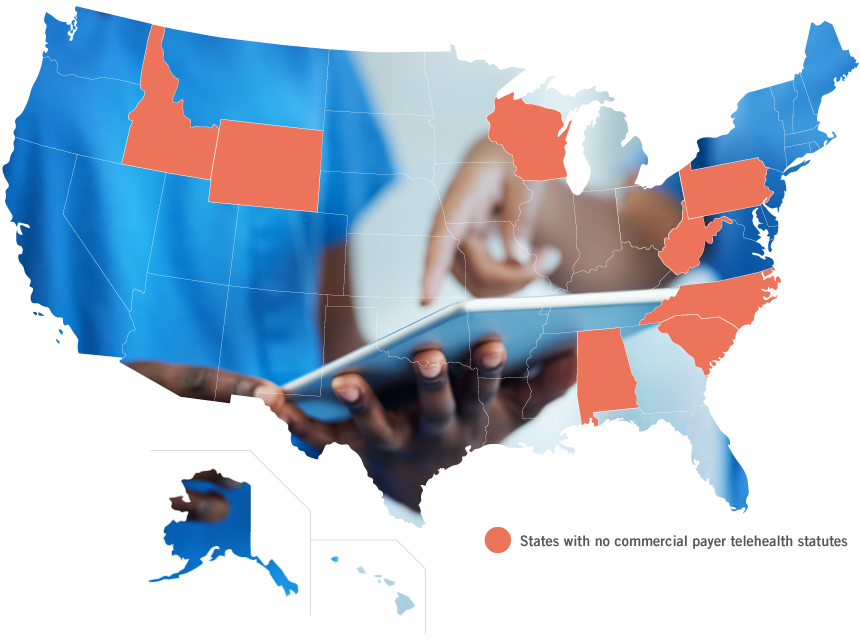Telehealth is Here to Stay: New 50 State Survey of Commercial Insurance Laws Reveals Progress
02 December 2019

Two years after Foley’s 2017 Telemedicine and Digital Health Survey uncovered a demand for telemedicine and digital health services, as well as coverage and reimbursement to match the growing demand, Foley explores how each state has responded in its 2019 50-State Telehealth Survey plus District of Columbia (DC) of Commercial Payer Statutes.
The survey found that as of October 2019, 42 states maintain some sort of telehealth commercial payer law, however several of these state laws do not actually require coverage or payment parity.
Foley’s report breaks down variances in telehealth commercial statues state-by-state, including:
- States that have commercial payer statutes in place
- States that have coverage parity or limitations
- States that have payment parity
- States that impose originating site limits
- States that have patient cost shifting protection
- State laws that address telehealth narrow or exclusive networking
- States that require coverage of reimbursement of remote patient monitoring
- States that require coverage of store & forward/asynchronous telemedicine
To read the full survey, download the 2019 report.

Author(s)
Related Insights
20 December 2024
Health Care Law Today
GLP-1 Drugs: FDA “Re-Confirms” Decision Removing Tirzepatide from the Drug Shortage List
On December 19, 2024, the U.S. Food and Drug Administration (FDA) issued a Declaratory Order reevaluating and re-confirming that the tirzepatide drug shortage has been resolved. This order revoked and replaced FDA’s October 2, 2024, decision on tirzepatide.
20 December 2024
Manufacturing Industry Advisor
Christmas Came Early: Justice Delivered in Supplier Dispute Over Unjust Enrichment
The AirBoss saga continues… This holiday season, AirBoss Flexible Products Co. received a monumental legal victory, righting a costly wrong in MSSC, Inc. v. AirBoss.
19 December 2024
Health Care Law Today
HIPAA Reproductive Health Care Amendments: Compliance in an Uncertain Enforcement Landscape
The amendments to the HIPAA Privacy Rule designed to protect reproductive health care information are under legal challenge as the compliance date quickly approaches.

